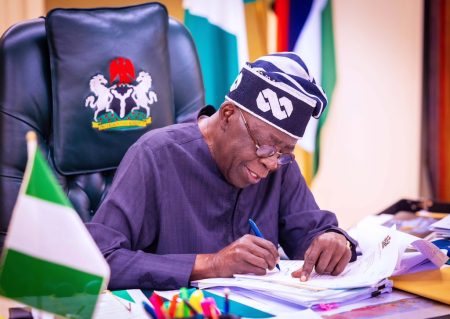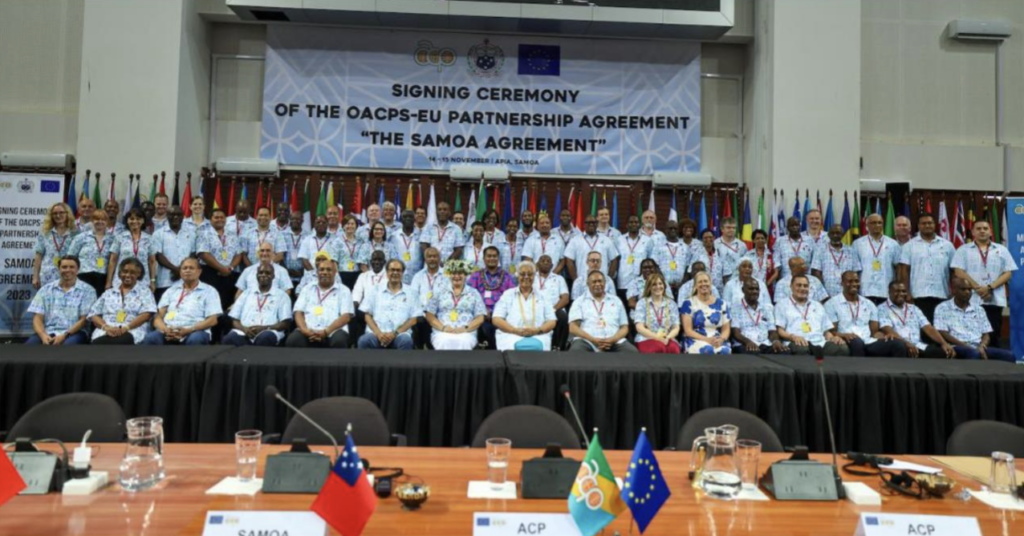
Samoa agreement signed and settled between the federal government of Nigeria, under the leadership of president bola Ahmed Tinubu and that of European union EU, on Friday June 28, 2024. the agreement had been signed by the president after covered reviews by the Inter ministerial Committee, convened by the Federal Ministry of Budget and Economic Planning (FMBEP) in collaboration with the Ministry of Foreign Affairs (MFA) and Federal Ministry of Justice (FMOJ).
The agreement has 103 articles comprising a common foundational compact and three regional protocols, namely: Africa –EU; Caribbean-EU, and Pacific-EU Regional Protocols with each regional protocol addressing the peculiar issues of the regions. here the African protocols be composed of two reasons.

firstly layout diagram for cooperation, while secondly structures areas of cooperation, carries Inclusive and Sustainable Economic Growth and Development; Human and Social Development; Environment, Natural Resources Management, and Climate Change; Peace and Security; Human Rights, Democracy and Governance; and Migration and Mobility. also, Idris stated that the signed agreement does not contravene any law in Nigeria, and the government has not in any way endorsed LGBTQ rights, which are illegal in the country by signing the agreement. accept the Samoa agreement is essentially legally for cooperation between the Organisation of African, Caribbean, and Pacific States (OACPS) and the European union at controlling climate change, maintaining sustainable development, investment opportunities and collaboration among OACPS Member States on the international stage,” Idris. in addition, Speaking on the defence of the agreement, Bolaji Adebiyi, Bagudu’s spokesperson, said: “The documents signed by the Federal Government were strictly for the economic development of Nigeria; nowhere in the documents were LGBT or same-sex marriage mentioned even remotely, and it would be wrong for anyone to imply that Nigeria had accepted those tendencies. What Bagudu signed was about a $150 billion.

Article 29.5 states that:
“The Parties shall support universal access to sexual and reproductive health commodities and healthcare services, including for family planning, information and education, and the integration of reproductive health into national strategies and programmes.”
Federal government of Nigeria ensured that none of the 103 Articles and Provisions of the Agreement contravenes the 1999 Constitution as amended or laws of Nigeria, and other extant Laws, the government said.

